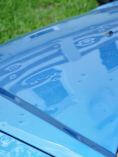Comprehending Comprehensive Coverage
.jpg)
Liability, collision, comprehensive…understanding various parts of an auto policy can get confusing.
Liability coverage helps pay for injury to another person, his or her medical bills, and property damage, from an accident an insured causes.
Collision simply helps you pay to fix your covered car if it is damaged in an accident, even if it's not your fault.
Comprehensive coverage is a little less obvious, but the meaning is simple. Here's how the Insurance Institute for Highway Safety defines it: "Comprehensive coverage insures against theft or physical damage to insured people's own vehicles that occurs for reasons other than crashes."
Drivers in almost every state are required to have liability insurance on vehicles they own. However, collision and comprehensive are optional. That being said, if you are making payments on your car, the lienholder probably requires you to carry both collision and comprehensive coverage.
Comprehensive Coverage Scenarios
To help you understand when comprehensive coverage applies, read the scenarios below:
- Scenario #1: You keep your car in the garage at home, but at work there is no parking garage so you have to park outside. Sadly, a huge hail storm hits while you are at work one spring afternoon, and your car is covered in dents. No worries though—if you have comprehensive coverage, it will cover the repair cost minus your deductible.
- Scenario #2: You go out of town to visit a friend for the weekend, and you parked in front of her house. It was there when you turned in for the night, but the next morning it was gone. Comprehensive coverage covers theft, so it will pay the value of your vehicle minus your deductible.
- Scenario #3: You were driving through a heavily wooded area at dusk, a deer ran out in front of your car, and it was impossible to avoid hitting it. You're fine, but your vehicle didn't fare as well. Comprehensive will pay to repair the damage.
- Scenario #4: You notice a chip in your windshield. If you have comprehensive coverage, it will pay the cost to fix the chip. If you don't get the chip fixed, and it causes the windshield to crack, that cost will be covered as well, but you must pay your deductible here. If it's higher than the cost of that windshield, you will have to pay for the new windshield yourself.
We really hope you don't find yourself in any of these situations, but if you do, wouldn't it be nice to have comprehensive coverage to help? Bear in mind that different insurance companies might have different exclusions, so you should make sure you understand your policy to avoid unpleasant surprises. Your Shelter agent will be able to answer any questions you have about your policy, so don't hesitate to ask.
The product information contained on this website is informational only and not a statement of contract. All coverage options are subject to the provisions of the policy purchased and details of the policyholder's situation.
-
Hail and Cars Don't Mix
 How to Avoid It
How to Avoid ItIf you know hail is in the forecast, there are creative ways you can protect your car from the damage it can cause.
-
Deer and Cars Don't Mix
 Avoid Deer
Avoid DeerDespite deer crossing signs, you can’t always predict when a deer will run in front of your car. If you get deer damage, your comprehensive coverage may help.
-
Distractions and Cars Don't Mix
 See Distractions
See DistractionsSome accidents can be avoided if you pay attention and don’t get distracted—and your phone isn’t the only distraction.
